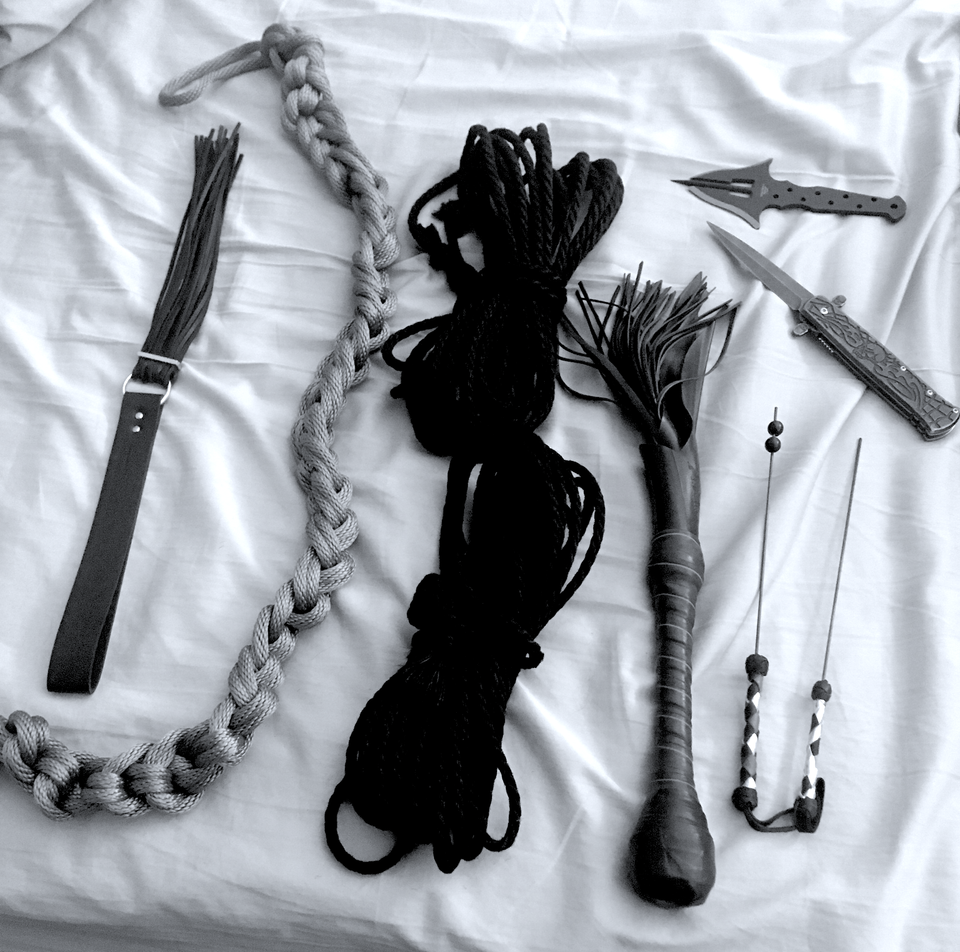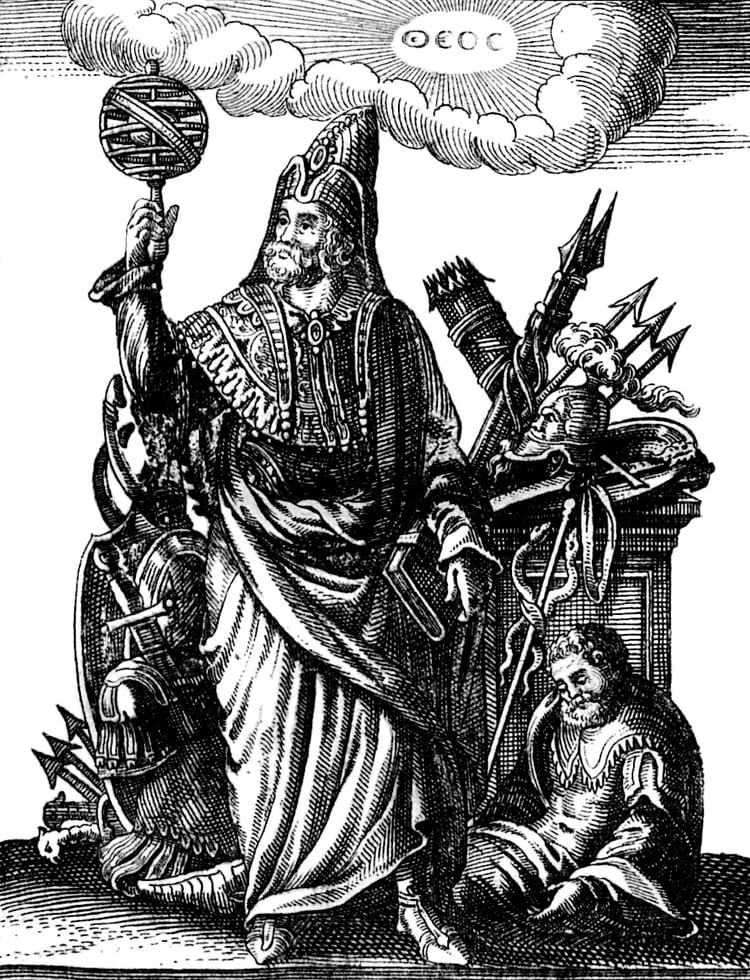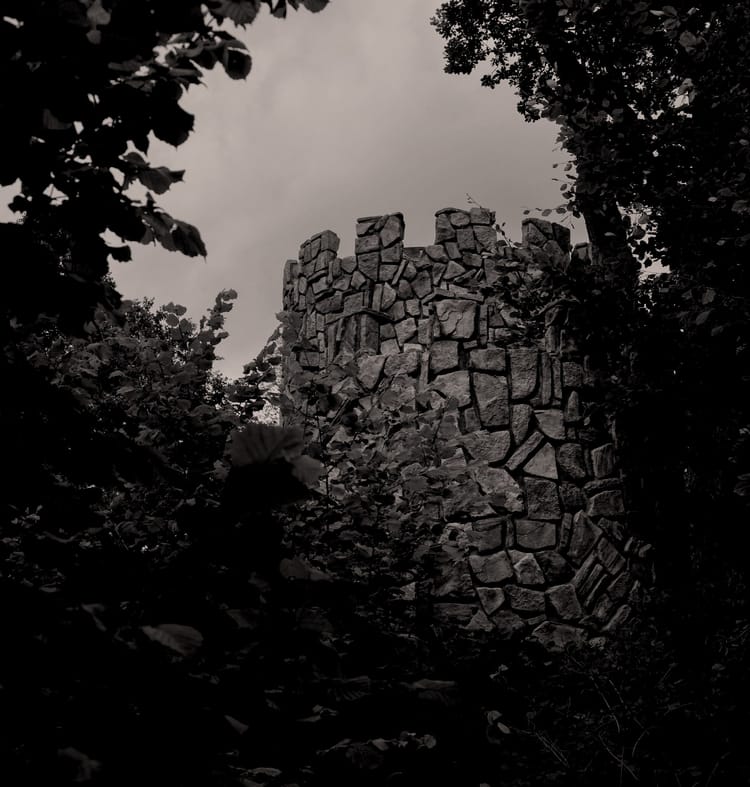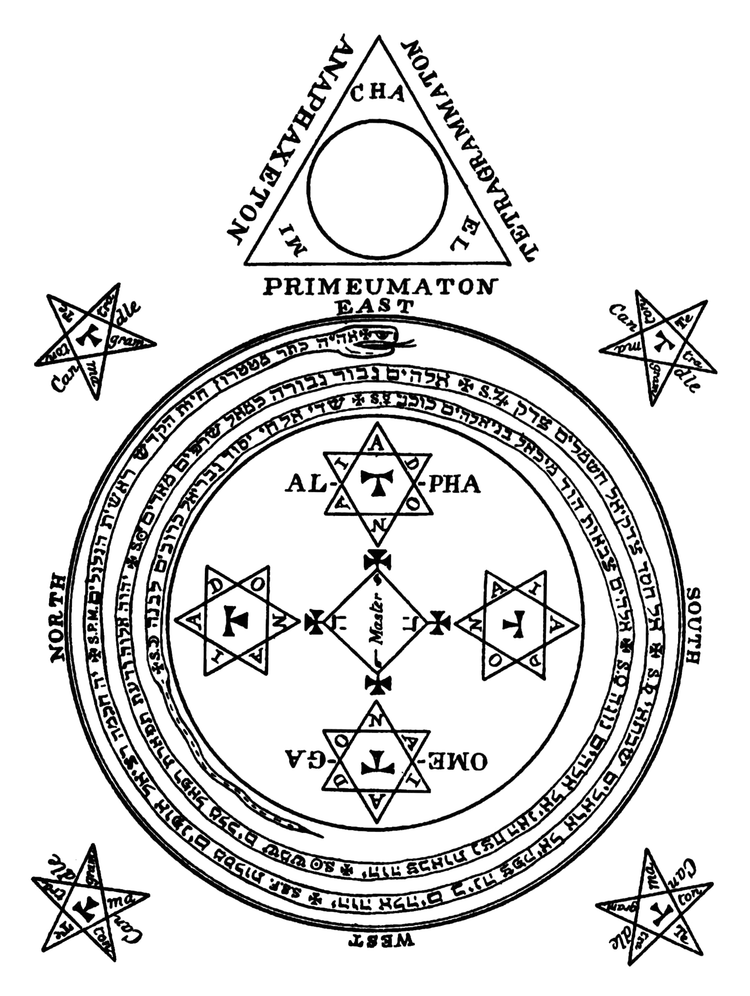New Moon: Kink as primordial principle

It's Friday. Hello. I have had my doubts about whether I would actually finish and send this piece on schedule, not only because of anticipated length but because my health saga's latest developments have left me with reduced concentration and energy. However, writing has as usual proven more of a comfort and fortifying agent than a burden, compared to some other thing. And importantly, I finally know most of what my body has been struggling with, and through treatment I feel reasonably certain I'm going to be all right in the end. It's only unfortunate that it won't be quick. I'm receiving a hard lesson in patience.
As for patience, though, in a way some of my readers here have been remarkably forgiving over the past year, and now the time has come to stop them waiting. I am about to finally start writing more about kink in Salt for the Eclipse. For those of you who signed up exactly looking for this, please accept my apologies that gathering my thoughts along kinky lines has taken this long. Besides initially seeking to establish the newsletter's broader framework, I must now confess I found my plans for writing about kink upended when some reading over the summer sent my mind spinning ahead through more advanced realizations than I had originally thought I could cover. Therefore, today's post is the product of not only years of private reflection but also about six months of recontextualizing. I hope that the outcome and what further flows from it will all prove worth your wait.
For those of you who didn't sign up for the newsletter's kink discussions but felt they were tolerable in low doses, I hope it won't be too jarring to see more of this.
Why I need to write about kink
What I'm going to talk about here is as vitally necessary to me as what I wrote on violence last month. And it also proceeds directly from that writing: as I concluded in "On violence" that sacred violence protocols are required for functional human communities, and that these protocols already manifest through activities like sports, theatre, and kink, to some degree I might simply point to kink as my primary violence protocol, and this would itself address why I invest myself in kink so deeply.
But as satisfyingly tautological as that might feel, it would only be rigorously sound if one assumes kink is something to be taken seriously. In this space I don't write much to convince the unwilling, but I also prefer to avoid preaching to the choir. I suspect there could be at least one person reading here who (maybe even despite their best efforts) can't help a small titter at seeing a subject line like "Kink as primordial principle" in their inbox, or who opened this with nervously bated breath at how I might be about to upend a vat of purple prose.
Like it or not, USA-ian imperial puritanism is such that for most vanilla adults and even for some kinky ones, kink is "just a sex thing" and it gives these individuals secondhand embarrassment to watch someone take the provenance of "horny weirdos" and culturally elevate it. In fairness to such flushed, gaze-averting perspectives, I do find that some kink communities needlessly and shockingly run themselves through bizarre mental gymnastics to contend that What It Is That We Do is not and should not be sexual at all; but besides how the truth of kink's sexuality is more nuanced than either camp would like to believe[1], describing kink as "just" a sex thing tells on the speaker's attitude about sex itself — a sniffing backlash to the obsessions of Freudianism, a retort that because life is about more than sex we should therefore belittle people who give sex hallowed attention.
I don't follow that logic, but it's quite common. And where kink itself is factored in to this antisexuality, I can see why a first glance at kink's history would make it seem no more important than any other modern subculture: even accounting for the kink-inflected scenarios that we can find in vintage erotica and antiquarian art, kink as we know it in its current trappings is quite new, not even a century old.
This modernity is worth picking apart, however. I can't effectively convince anyone to be more interested in a genuinely sexually open society[2] than they are; I think that in contrast to the non-desires of people who have no sexual feelings to begin with, the most puritanical objections to "horny people" are pathological extensions of minds that harbor trauma-derived insecurities around having one's sexuality punished with alternately scorn or exploitation. Addressing those insecurities is a matter for therapy, and I don't say that derisively; despite my slightly sharp tone here I wish such people healing as much as I wish they would stop turning their pain to resentment. But kink's modernity vs. its deep-time origins is what I can tackle right here, and will. And to some extent by addressing it I think I may come around to de-puritanization by a backdoor.
So with those considerations on the table, I will state plainly: I need to write about kink because not only is kink a mode of controlled physical violence but it's also a mode of ritualized power management with far-reaching implications for humankind's future development. All these things go hand in hand, and here I intend to tease out the ritualized power management much more than "On violence" brushed up against.
Semantic refinements
More aggressively than in past posts, I need to avoid playing fast and loose with terms I'm going to use here like kink, fetish, and BDSM. Often, I don't think it's important to split hairs with this — I find people who constantly insist, "You don't have a kink, you have a fetish, and you practice kink," very tedious since colloquial usage has rather irrevocably blurred the words in use. But for precise philosophical purposes I am going to impose some definitions on myself and try to stick with them once and for all in future posts.
- Fetish: a non-normative erotic interest (see footnote 1 for my distinction between eroticism and sexuality). Some people also like to insist that a fetish must be something that's imperative to one's erotic fulfillment, i.e. someone can't orgasm without looking at high-heeled shoes, but again this usage has blurred and I think it's more realistic to treat fetishes as just erotic focal points.
- BDSM: fetish-derived erotic activities centered around a currently frequent convergence of bondage/discipline (physical and psychological restraint), domination/submission (power exchange), and sadism/masochism (giving and receiving pain). The convergence itself is not expected of all kinksters in this mould, but as physical and psychological restraint can feed power exchange, as power exchange can heighten the delivery and experience of pain, and as many similar symbioses can work in other directions, taken together it's very common for many[3] people to explore BDSM as a total package.
- Kink: the umbrella of fetish subcultures, covering both BDSM and communities/activities centered around non-BDSM fetishes.
In my day to day speech and offhand written remarks, I really can't promise using the same diligence, but when wading into philosophical waters I owe myself and others some linguistic clarity.
And I must emphasize philosophical. What comes next here is not a history lesson, but analysis and interpretation in response to the latest radical anthropology.
Fluid, free, land-guided governance
In "On violence" I wrote of how colonized humans lack violence protocols. But we also lack a consent structure. This is a bitter irony since the imperial, capitalist model of so-called human progress is drawn as a straight arrow of Hobbesian evolution "away" from abusive, warlike forms of existence and "toward" peace and democracy — the process of "becoming civilized." The likes of Steven Pinker even tried to convince people relatively recently that we live in a less violent[4] age than any that preceded; in turn, people who are a little further to the left than Pinker often still frame their consent politics as a matter of being "progressive," such that when oppression and abuse become widespread "our civilization is backsliding." I will come back to post-civ or anti-civ theory some other time — my views there are sympathetic but cautious — but in essence I am bleakly amused when neoliberals speak of hard work being undone by reactionaries despite the hard work not really having been accomplished anyway.
I think that although successive generations each come up with new and sometimes more useful ways of thinking about matters like consent and autonomy, there's a difference between refining our ideas and improving our actual human relations. The latter doesn't happen very much nowadays, and its likelihood has decreased in waves throughout about two thousand years of European history and the more recent transferrence of those traumas onto other continents.
Sadly, at some point this deterioration started to be treated by "great minds" as inevitable — as if indigenous, uncolonized, free peoples will always voluntarily cast off the advantages of their own cultures in order to reap the perceived benefits of a more extractive, atomized lifestyle. Rousseau and his ilk looked to indigeneity as a state of only delicate teacup grace, thus something to learn from but not to really live by. Hence today we are raised with the "noble savage" stereotype, and when people recognize the faults in that depiction, they usually feel like they can only go back to Hobbes, deciding that the "noble" part was the mistake. But for a while now, I've been trying — very imperfectly, with so much to unlearn — to look to existing indigenous groups and past ancestral knowledge of now-colonized peoples, to ask what they know/knew that my education didn't give me, and to figure out why all my impulses in kink feel like they come from something impossibly old. Why my senses that tingle at ritual are the same ones that tingle at kink.
Embarking on such a quest is easier said than done, because it's so perilously simple to fall into the trap of objectifying and idealizing ordinary humans, or of hoping for someone to wave a magic wand and impart Indigenous Wisdom® that causes instant enlightenment. And as all of that involves fetishization of a kind, the peril only increases when trying to access kink along the way. There is a razor-thin line between a) Euro-descendant kinksters who explore ritual violence and power exchange as part of an authentic search for recovering our own lost rites of passage, and b) Euro-descendant kinksters who believe they're automatically entitled to adopting modern colonized peoples' own rites (see: some acolytes of Fakir Musafar, and arguably Musafar himself).
However, despite needing to walk that line very carefully, I hope I've walked it as best I can, and I feel as if walking it has led me around a productive spiral that's started giving me answers. For purposes of this post, the main work that helped me make sense of my own ideas was my summer reading of The Dawn of Everything by David Graeber (rest in peace) & David Wengrow.
If you've read the book yourself, or if you've read my previous review of it, everything I've written in this section so far may sound quite familiar. It's a state of mind, wondering about the classic Hobbes vs. Rousseau "human nature" debate, that I've sought a third way out of for decades, and that apparently fueled Graeber and Wengrow in crafting their joint anthropological treatise. The book's central arguments might be boiled down to these theses:
- Humans have long experimented with and adopted a variety of governance systems, ranging between egalitarian and authoritarian, regardless of how many tokens of "civilization" they've also had at the time.
- "Enlightenment"-era thinking on democracy was the importation of non-written theories of government from indigenous peoples of that era, particularly in North America.
- An authoritarian backlash to democratic theory that developed around this same time has repeatedly shut down attempts to engage with that prior indigenous knowledge, just as colonization itself has threatened the actual indigenous groups in question.
- Though it's right to discourage exploitation of indigenous knowledge via "noble savage" fetishism, this does not mean indigenous knowledge itself is a myth, or that indigenous communities have not already solved many problems that Eurocolonial capitalist paradigms keep reinventing.
- While much of pre-recorded human governance can only be speculated upon, there is plenty of ancient and contemporary evidence to suggest that humans have a marvelous capacity for decentralized, anarchic self-organization that can even survive the development of agriculture.
With these assertions in mind, I don't need to go point by point through the whole book. For one thing, Graeber & Wengrow's catalogue of archaeological and anthropological material is so astonishingly thorough that I would do it a severe disservice through summary; for another thing, not all of it matters to this post. But for these purposes some sections and passages still stood out to me as holding profound information, profound insight.
First of all, much of the extensive cataloguing covers known, real systems of governance used among various tribes throughout Euro-recorded history. Now I would of course like to read a book of this sort compiled by non-settlers, but my inexpert assessment is that Graeber & Wengrow as outside anthropological gazers still work with the right balance of respect for their subjects and caution against painting all indigenous peoples as a mystically perfect monolith. This makes for long but refreshing reading. With neither insult nor idolization, the writers cover kingship systems where the kings were revered by the rest of their community with deadly seriousness where certain matters were concerned, but usually quite ignored in favor of more democratic dealings; or tribal communities that have practiced slavery, but by all accounts treated their slaves more as pets than as chattel, and also shared resources among households with extravagant generosity.
Were these good or bad ways to live? The authors don't offer easy answers; their real goal is to illustrate that these governance systems have existed, and that they could evolve under all sorts of environmental and technological conditions. Indeed, Graeber & Wengrow continuously argue that many communities' government systems may have developed in direct response to other systems they had already lived under, or witnessed next door, and that they thought didn't work very well. Humans have always thought just as politically as we do now; we haven't needed written theory to try sculpting new praxis; and sometimes what works for one community perfectly fine is not what works for another one.
Maybe there is no silver bullet for inequality, but rather several. This angle of the book especially intrigued me because of how contemporary strains of thought via anarchism and most kink ideology tend to unite around autonomous values of every person negotiating and consenting to what rules they ought to follow. But as interesting as that overlap can get on its own, my skin outright prickled as Graeber & Wengrow profiled some research by Claude Lévi-Strauss on the Nambikwara people of contemporary Brazil. I paraphrased this in my original review of the book, but here's one of the key passages in full:
In the 1940s, the Nambikwara lived in what were effectively two very different societies. During the rainy season, they occupied hilltop villages of several hundred people and practised [sic, UK spelling] horticulture; during the rest of the year they dispersed into small foraging bands. Chiefs made or lost their reputations by acting as heroic leaders during the "nomadic adventures" of the dry season, during which times they typically gave orders, resolved crises and behaved in what would at any other time be considered an unacceptably authoritarian manner; in the wet season, a time of much greater ease and abundance, they relied on those reputations to attract followers to settle around them in villages, where they employed only gentle persuasion and led by example to guide their followers in the construction of houses and tending of gardens. In doing so they cared for the sick and needy, mediated disputes and never imposed anything on anyone. (p. 99-100)
Graeber & Wengrow then ask what to make of this, and reiterate Lévi-Strauss' own conclusion that these leaders were not tyrannical but rather something else. The writers proceed through several more examples of seasonally shifting leadership systems, because in fact this has been quite a common pattern among the varying governance models that our species has tried. Sometimes the pattern works in an opposite way from what's profiled for the Nambikwara: rather than use more autocratic decision-making in tougher seasons and a democratic format in the kinder ones, plenty of peoples have settled on having centralized, concentrated power as a means of distributing abundant resources, but letting community members address their needs on a decentralized basis when resources are scarcer. The significance of seasonal government cycles does not come from exactly which seasons mean which system to use, but rather from the cycling itself.
As a ritualist, I couldn't help but read this portion of the book brimming with excitement that while the warring Holly King and Oak King are modern inscriptions trying to make haphazard sense of lost traditions, lost stories, given the global nature of this seasonal shift pattern it's very plausible to imagine analogous, indigenous European versions that once existed, and that the Holly and Oak Kings might be scraps of vestiges of shreds of ghosts of an old truth for some of my ancestors.
But I was even more excited to reflect on what The Dawn of Everything highlights through this section and others when it comes to power exchange: contrary to what modern hegemonic ideology would have us believe, humans have a remarkable history of appointing temporary leaders. Who might, for a time, hold supreme power with certain people, but not in an absolutely permanent, unrecallable manner. As Graeber & Wengrow observe, the Nambikwara leaders and others following similar models had to make good, responsible decisions for their foraging bands, or they would not be trusted as village leaders when they reconvened during the other half of the year; likewise, if they acted too despotically when they were supposed to use only soft influence, then they would not be trusted with absolute leadership over a small band in the future either.
Kink might be very modern, and so might the current language of consent culture, but negotiated power exchange is the stuff of pre-industrial communities. So now —
Implications for kink
Despite my enthusiasm for this whole area of study, of course I can't conclude that erotic domination/submission within the BDSM model is the actual basis of many human governance systems, no more than I can claim sadism/masochism within BDSM as a direct throughline to ancient ritual violence protocols. But yet again, the underlying grammar matters more than the vocabulary.
I would like to suggest that BDSM indicates a fundamental, experimental, and even playful impulse that humans have to put our more violent instincts toward non-destructive uses, and to find highly context-reliant, routinely re-examined power relations for living with each other in a diversity of circumstances. Sometimes other, more dangerous impulses win out — just as authoritarianism and abuse have emerged in many governance systems, so too do such figures cause problems within BDSM and the overall kink scene — but they don't always. And the transmission of the ritual violence + negotiated power exchange instinct into an erotic context is a symptom of the repressive conditions under which most of us have lived for centuries. With allosexual standards imposed upon us alongside other authoritarian conditions, things consigned to hide out in the shadows are able to mingle.
Now, that is only BDSM, but meanwhile I think something interesting has also happened with other fetishes, which are not implicitly addressed through The Dawn of Everything but which I have been meditating on before writing this post.
As brought up earlier, the word fetish has changed its meaning over time. Originally it was colonial, a fancy 17th century way to say that someone (perceived as primitive) believed a particular object was magical or otherwise supernaturally powerful. A couple centuries later this concept shifted to suggest the object was actually being worshiped or revered, and the connotation behind this was again of a primitive silliness. After another fifty to a hundred years, that old sense was preserved but a sexual layer was added: someone with a fetish assigned sexual significance to an otherwise non-sexual thing. The final permutations of this word use have been the aforementioned quibbling about whether one's sexual fetish requires the fetish object to be present for sexual fulfillment or not.
Recently I've come to consider that a fetish in the older, colonial sense could and maybe should be rephrased as "an object afforded special meaning with an animist relational cosmology." Well, perhaps not that if we'd prefer something snappier. But with fetish's sneering roots, I must at least float a neutral alternative. And in doing so, we can draw an immediate parallel to the more modern sense of fetish as a transposed relation-making tool, where a non-erotic object is imbued with eroticism. Whether magical or erotic, by forming this conceptual relation, the imbuer develops a greater attachment to the object; the more attachments, the stronger their relation network. Another tendency that can survive amid sexual mysteries, even when it can't survive in other parts of our society.
Thus, if kink is not the only preservative tool we have for certain ancient instincts, it is certainly a major one. And kink's importance is then heightened further by how the practices are already rife with ritual through protocol, regardless of exactly what fetish the protocol is about. Likewise, though kink in its worst forms is proselytizing and love-bombing — cultish — in its best forms it is initiatory and both self-driven and furthered by responsible elders — cultic.
Where we come from & where we will go
As I hope I've made clear enough so far, kink is not what we all came from, but a transmutation of that origin where the underlying primordial principles may have been the same: violence must be ritually managed, power must be consensual and limitable, and deep relation can be formed with anything in the right context.
Over the past year or more I've said much on how to extract ourselves from what I call the great rolling dung ball — though lately I've learned the term the metacrisis[5] — we are going to need recovery of ritual life, again not in exact content but in conceptual structure, and with the law of ritual coming from our biospheres, which has sometimes been preserved as ancient knowledge but can also be rediscovered or reworked. But building on that general foundation, we are also going to need kink and the ethos that informs it: first to operate outside mainstream, hegemonic society as a testing and building ground for that ritual life, then to become the new society as the current one breaks down.
This is not without its dangers — how many erotic (and anti-erotic) cults have risen and fallen! And how wary I am of offering a gospel of salvational kink. But questions of how to proceed rightly and ritely with kink, as well as explorations of the liberatory potential in specific kinks, will be a larger portion of this newsletter going forward. I hope that today's bulky missive has given you exhaustive clarity as to why.
[1] I don't want to derail into this particular point today, but as I'm sure I may write about more eventually, I think of kink as inherently erotic and optionally sexual. The erotic can include the sexual but is also a larger aesthetic realm that can be separated (though not fully divorced) from bodily sexual arousal and orgasmic fulfillment.
[2] I could not disagree more with the currently popular assertion on both the right and (some of) the left that our society's standard of allosexuality (normative, compulsory sexuality) is widespread, orgiastic sexual promiscuity without any preceding emotional connection. Most humans do not operate this way when left to their own devices, and they also do not operate this way under present social conditions. Contemporary allosexuality is less focused on childbearing than it used to be, but it still comprises men pair-bonding with women in a monogamous fashion (lifetime or serially), committing in non-sexual ways before indulging sexually, keeping their sexual activities out of the public eye, and (here's the post-industrial Victorian twist, as real Puritans believed the opposite) the man being the primary desirer of sex which the woman virtuously withholds except under special circumstances. Whether you are non-monogamous, queer, kinky, sexually expressive, asexual, or hypersexual (especially as a woman), any deviation from that model is a non-allosexuality.
[3] Most? We will never have the right statistics to tell us this. I lean on just saying "many" because if there's a majority, it might be a slim one, and I do have plenty of friends who are exclusively interested in the b/d, the d/s, or the s/m, or only interested in two of the three.
[4] Going by my definitions in "On violence," I assume he means the violating kind of violence.
[5] I am slightly leery of it based on what I can vaguely glean about the people it may have originated with, but I'm not clear on the details. Taken on its own, I find it a good word even if I won't adopt it right away.
I am always glad if someone makes it to the end here, but as with "On violence" I'm especially glad here. Thank you — and if what I've written today resonated with thoughts you've also had, I would love to make this discourse more than unidirectional. Comment or message me as you see fit.
On that note, here is a final reminder that I've been intending to publish my first special seasonal Q&A post next week. Occult-tier subscribers can send me questions at the e-mail address I've provided them; please send those questions before Tuesday the 16th of January. If I receive no questions, then the post will be skipped.
After that, in terms of my routine Friday posts, next week you can expect some theoretical work on the magic of hand crafts, and the following week will be an Occult post.





Member discussion